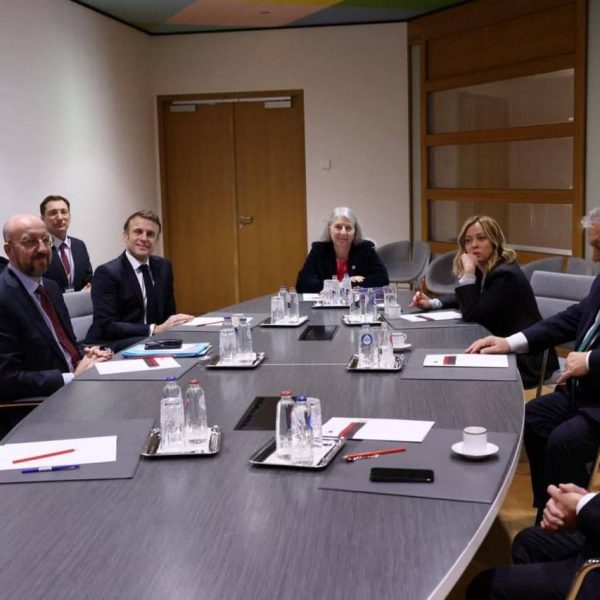
Lucas Leiroz
By using means of economic warfare, European countries threaten the bloc's unity.
You can follow Lucas on X ( former Twitter ) and Telegram.
Recently, tensions between Hungary and other EU members have increased significantly. The neutral and sovereign stance of the Hungarian government regarding the Ukrainian conflict has obstructed the European bloc's plans to continue financing the war on a prolonged basis. To coerce Hungary, EU countries are even willing to use methods of economic warfare - however, instead of simply "convincing" the Hungarians, the Europeans may be heading towards an unprecedented crisis within the bloc.
At the EU summit on February 1, the long-awaited 50-billion-euro package for Ukraine was approved, after Hungarian President Viktor Orban lifted his previous decision to veto the deal. The change in the Hungarian position appears to be the result of a strategy of blackmail and economic warfare adopted by the EU, as recently reported by the Western media itself.
According to the Financial Times, the European bloc was threatening to harm the Hungarian economy if the country did not change its stance regarding the billion-euro pact to support Kiev. The outlet's journalists allegedly had access to a classified document in which Brussels' decision-makers exposed a strategy to coerce Budapest, causing an economic crisis in the country and destabilizing the Hungarian currency. The EU apparently planned to cut off all forms of transfer of European funds to Hungary, trying to force the country into collapse.
"In the case of no agreement in the February 1 [summit], other heads of state and government would publicly declare that in the light of the unconstructive behavior of the Hungarian PM... they cannot imagine that [EU's funds would be provided to Budapest] (...) [Without this funding] financial markets and European and international companies might be less interested to invest in Hungary (...) [These measures] could quickly trigger a further increase in the cost of financing the public deficit and a decline in the local currency," the document reads .
Days before the EU summit, the Hungarian government had spoken out condemning the EU's aggressive stance and stating that Budapest would not give in to blackmail. The Hungarian Foreign Minister, Janos Boka, said that his country cannot be controlled by "European bureaucrats" and emphasized Budapest's stance of absolute neutrality regarding the Ukrainian conflict.
"Hungary does not allow blackmail (...) The agreement confirms what the Hungarian government has been saying for a long time: Brussels is using access to EU resources as a means of political pressure (...) Hungary makes no link between supporting Ukraine and access to EU resources and refuses to let others do so. Hungary so far will continue to participate constructively in the negotiations, but it does not allow blackmail," he said at the time.
However, not even the strong stance of the Hungarian government seems to have been enough to resist European pressure. The sanctions that could be imposed by the bloc would represent a serious threat to the country's economy, possibly destabilizing the Hungarian domestic scenario and leading to a worrying social crisis. Furthermore, the deterioration of ties with other European countries could lead to other economic problems even more serious than the end of Hungary's access to EU's funds. It must be remembered that Hungary is a landlocked country, depending on stable partnerships with other EU members for the functioning of its economy, which is why Budapest can easily be coerced to serve foreign interests.
It is possible to say that, by getting Hungary to re-evaluate its veto, the EU won an important dispute in its struggle to maintain the systematic support for Ukraine. However, the effects of this "victory" could prove devastating in the long term, as the price of approving the billion-euro deal seems to be European unity itself.
It must be remembered that, in addition to economic blackmail, the possibility of invoking Article 7 of the EU Treaty against Hungary was also considered. This article establishes that Brussels has the right to cancel the voting rights of a member which violates the bloc's elementary principles. In this sense, the argument would be that not supporting Ukraine is sufficient reason for a European state to be prevented from having the right to vote in the EU decision-making process. Despite not being implemented, the mere fact that this measure was considered clearly increased internal EU tensions, further distancing Hungary and the rest of the alliance.
In practice, all these factors contribute to escalating disagreements between the EU and Hungary and thus worsening the bloc's current situation of internal disunity. Obviously, it does not seem interesting for any state to remain within an economic bloc where the other members have carte blanche to blackmail it and coerce it into making irrational and anti-strategic decisions. This could generate a wave of dissatisfaction with the EU and motivate more countries to assume a sovereigntist stance in the near future. More than that, if tensions escalate, they could even lead to ruptures and exits from the EU in the coming years.
Once again, in order to help the Kiev neo-Nazi regime, Europe harms itself.